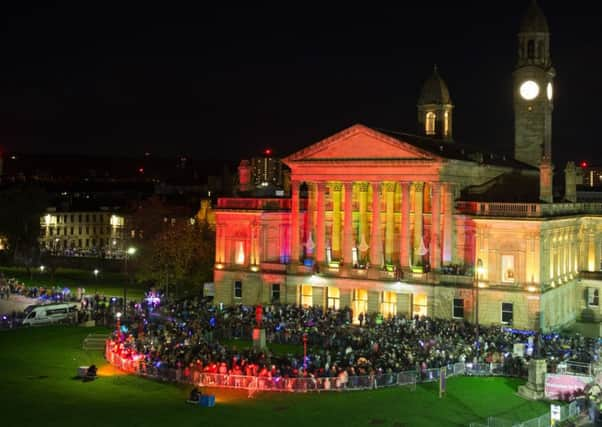Brian Ferguson: Paisley should show what it would have done with culture title


For some, it would have been the trigger to recall the long road the city set out on in the wake of the official announcement in Sri Lanka, which sparked scenes of wild celebration back at the Old Fruitmarket in Glasgow’s Merchant City.
For others, it was undoubtedly a time to recall the impact that Glasgow 2014 had on the whole country in that tumultuous summer, when it felt like Scotland was in the global spotlight more than ever.
Advertisement
Hide AdAdvertisement
Hide AdThe memories of the rush of excitement at Glasgow being awarded the Commonwealth Games came flooding back for all the wrong reasons last week when the team leading Paisley’s bid for the UK City of Culture title suddenly faced the harsh reality of defeat and the agonising thoughts of what might have been.
In the immediate aftermath of Thursday’s announcement, which came hard on the heels of Dundee discovering its hopes of winning the European Capital of Culture title had been scuppered by Brexit, I was struck by a belief that Scottish towns and cities should probably steer well clear of these competitions in future. It is nearly three decades since Glasgow’s game-changing year, 1990, after all. Paisley has other ideas, though.
To their great credit, the response of Paisley bid leader Jean Cameron and her team to the crushing blow of defeat has been entirely in line with the way they conducted the campaign - passionate, confident, clear-headed, dignified, assured, forward-thinking and upbeat.
While the coveted prize has gone to Coventry, a bigger picture has now crystallised for Paisley - using culture to truly transform the fortunes of the town and the people who live there.
Four years ago, Dundee felt it was too far down the road of its own culture-led renaissance to be awarded the UK City of Culture title ahead of Hull.
Paisley has undoubtedly a lot further to go than Dundee, which is already being cited as one of the UK’s coolest cities to visit ahead of the V&A museum opening next year.
But the backers of the Paisley bid seem determined to live up to the promises of serious cultural investment made in the wake of its shortlisting back in July.
While the £20 million events programme was wisely kept under wraps ahead of the final decision, Renfrewshire Council is committed to £110 million worth of infrastructure improvements which were guaranteed regardless of the result.
Advertisement
Hide AdAdvertisement
Hide AdBut, for me, the real legacy of the bid has already been achieved in two crucial areas. By warmly embracing all forms of culture over the last couple of years, it has filled Paisley with a priceless self-confidence and positivity that other towns and cities across Scotland would kill for.
The bid process has also dramatically changed perceptions of Paisley.
In just two years it has become one of the most outgoing and ambitious parts of the country - no small achievement when it does not have its troubles to seek, particularly in terms of levels of deprivation and unemployment. It has also attracted awards ceremonies, artists, orchestras, events and promoters that would have been unthinkable only a few years ago.
What happens next is the crucial question and its much-discussed “journey” will be fascinating to follow, particularly if Paisley dusts itself down and raises its ambitions further, as Dundee has undoubtedly done.
Particularly intriguing is the political dimension. Maybe the onus is on the Scottish Government to deliver the £10 million funding it had pledged for the bid - and allow Paisley the chance to show what it could have done with the UK title by 2021, by which time Scotland could, if the government has its way, be an independent country.